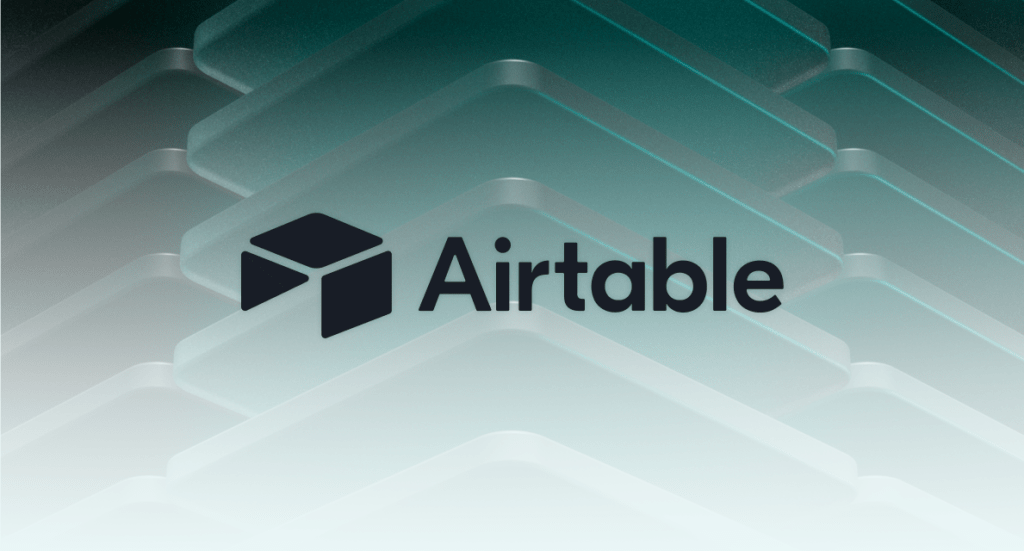
Join our daily and weekly newsletters for the latest updates and exclusive content on industry-leading AI coverage. Learn More
As companies struggle to realize returns on massive investments in artificial intelligence, Airtable is betting it can help enterprises finally deploy AI into critical business workflows at scale.
The San Francisco-based company announced on Thursday new capabilities that transform its collaborative app-building platform into what it calls a “true enterprise-grade AI platform.”
The additions include App Library, which allows companies to create standardized AI-powered applications that can be customized across an organization, and HyperDB, which enables integration of massive datasets of over 100 million records.

AI deployment: Moving beyond chatbots to workflow automation
“There’s been way too much emphasis on just the hard tech, and not nearly enough emphasis on the ergonomics and how to actually utilize LLMs today,” said Howie Liu, Airtable’s co-founder and CEO, in an interview with VentureBeat. He argued that while there’s been fascination with ever-larger AI models, the focus needs to shift to deploying AI in real business use cases.
The move positions Airtable to capitalize on surging enterprise interest in generative AI. Goldman Sachs forecasts $1 trillion in AI investments from tech firms, corporations and utilities in coming years. But many early AI initiatives have failed to deliver tangible business impact.
“We’re at a tipping point in the AI era, yet most enterprise AI adoption is still just scratching the surface of the powerful potential that could transform digital operations,” the company said in its announcement.

Balancing standardization and customization: The Enterprise AI challenge
Airtable claims its platform is already used by major media, retail and financial services companies to power critical operations. One unnamed “leading streaming company” reportedly saved 280 hours per week on content genre classification using custom AI solutions built on Airtable.
The new enterprise offerings aim to strike a balance between standardization and customization — a common challenge for global organizations. App Library allows central teams to create standardized applications with embedded AI that can then be adapted by different business units.
“We give them a Lego kit, and we make the technology really accessible,” Liu said, emphasizing Airtable’s focus on empowering business users rather than just technical teams.
HyperDB, meanwhile, is designed to make massive datasets from systems like Snowflake and Salesforce more accessible for use in departmental applications while maintaining centralized governance.

Scaling AI: From chat interfaces to parallel processing of thousands of tasks
Airtable faces competition from established enterprise software vendors racing to embed AI capabilities, as well as a crop of AI-native startups. But Liu believes Airtable’s approach of enabling parallel deployment of AI across thousands of records or workflow steps is differentiated.
“It would be like, could you hire overnight and just for five minutes worth of work, 10,000 decently smart interns to go work on a task,” he said. “That is a really powerful kind of form factor.”
The moves come as Airtable, valued at $11 billion in late 2021, navigates a more challenging funding environment for tech startups. The company laid off about 250 employees last year and is reportedly preparing for a potential IPO.
Airtable’s enterprise push represents a significant pivot from its roots as a user-friendly collaborative spreadsheet tool. While the company has successfully built a large user base with its grassroots adoption strategy, competing in the enterprise market presents new challenges. Airtable will need to prove it can handle the complex security, compliance, and integration requirements of large organizations.
This strategic shift positions Airtable in direct competition with tech giants like Microsoft, Salesforce, and ServiceNow, all of which are rapidly integrating AI into their offerings. Airtable’s success will likely depend on whether its approach—empowering business users to create AI-enhanced applications—can deliver tangible productivity gains more efficiently and cost-effectively than solutions from established vendors.
As enterprises grapple with how to extract value from their AI investments, Airtable’s platform could find a receptive audience. However, the company will need to clearly articulate its differentiation and ROI proposition to stand out in an increasingly crowded market for enterprise AI solutions.
In the end, Airtable’s ambitious leap from organizing data to orchestrating AI may just prove that in the world of enterprise software, the best way to think outside the box is to rebuild it entirely.
Source link





